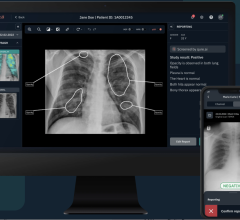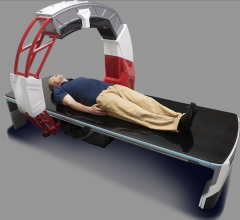November 29, 2007 – According to a study presented at the annual meeting of the Radiological Society of North America, by using fluorodeoxyglucose positron emission tomography combined with computed tomography (FDG-PET/CT), radiologists and physicists are able to spot the spread of cancer earlier.
"PET/CT is useful in staging inflammatory breast cancer, because it provides information on both the primary disease site, as well as disease involvement throughout the rest of the body," said Selin Carkaci, M.D., assistant professor of diagnostic radiology at The University of Texas M. D. Anderson Cancer Center (UTMDACC) in Houston. "In addition, PET/CT is also a practical tool for therapeutic planning."
Inflammatory breast cancer is a rare but extremely aggressive form of breast cancer that doesn't present like other forms of breast cancer. It accounts for 1 to 5 percent of all breast cancer cases in the United States. The disease tends to be diagnosed in women at a younger age and is characterized by redness, swelling or warmth in the breast. These symptoms occur within a three-month period. Often there is no palpable lump, and by the time it is diagnosed, the cancer has already metastasized, or spread, reducing the chances for survival. According to the American Cancer Society, the five-year survival rate for patients with inflammatory breast cancer is only 25 to 50 percent.
With FDG-PET/CT, researchers are able to accurately determine the location of metastases early in the disease process, when appropriate treatment can be administered.
The study included 41 women, mean age 50 years, who were newly diagnosed with inflammatory breast cancer. Each patient underwent a whole-body FDG-PET/CT exam.
FDG-PET/CT depicted metastases in 20 patients (49 percent). These findings were confirmed by biopsy and supplementary imaging. FDG-PET/CT produced only two false positive results, identifying those areas as cancerous when in fact no disease was present, resulting in a 95 percent accuracy rate. The PET/CT scans were also able to identify instances of cancer involvement in the patients' lymph nodes with 98 percent accuracy.
"What's exciting about PET/CT is that it is able to detect disease in its earliest stages, when changes are happening at a functional and cellular level," Dr. Carkaci said. "This is quite different from other imaging modalities that identify disease when there is destruction of normal anatomy."
For more information: www.rsna.org


 August 09, 2024
August 09, 2024 








